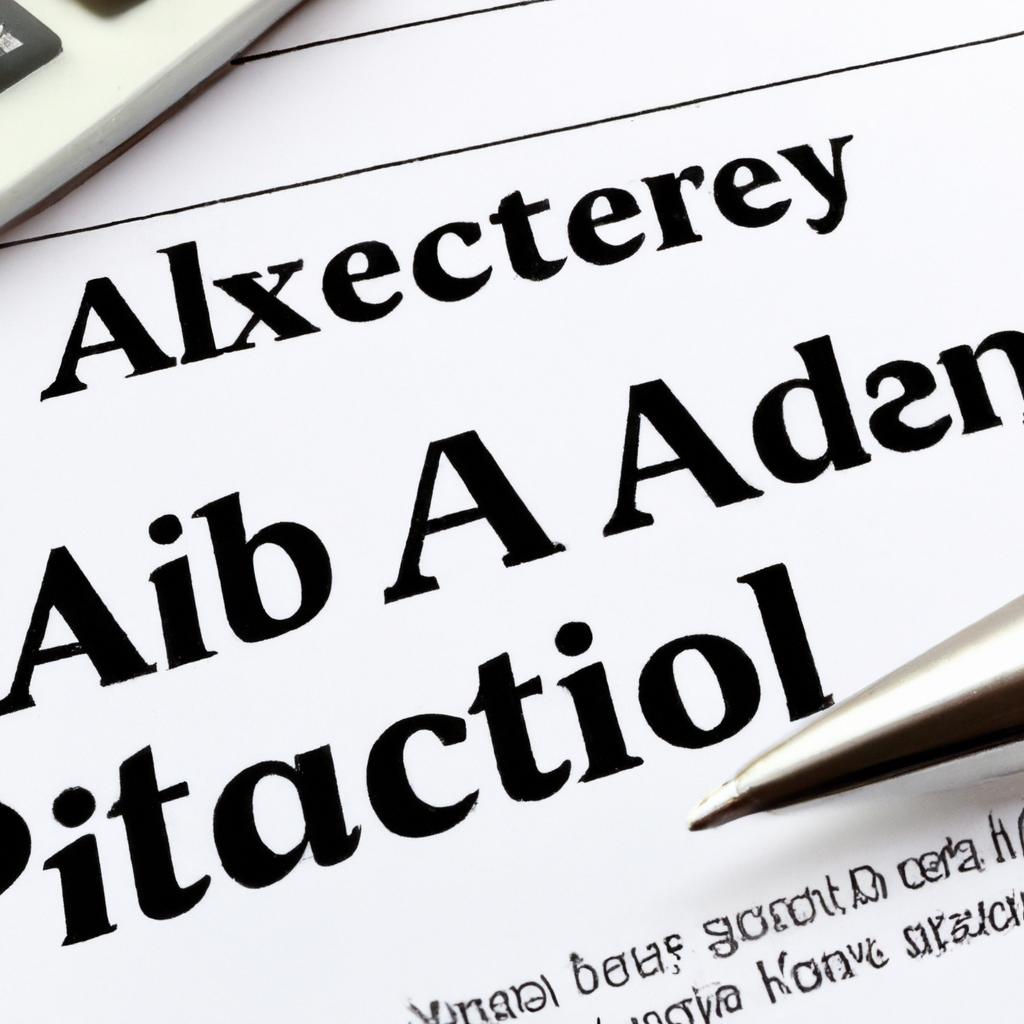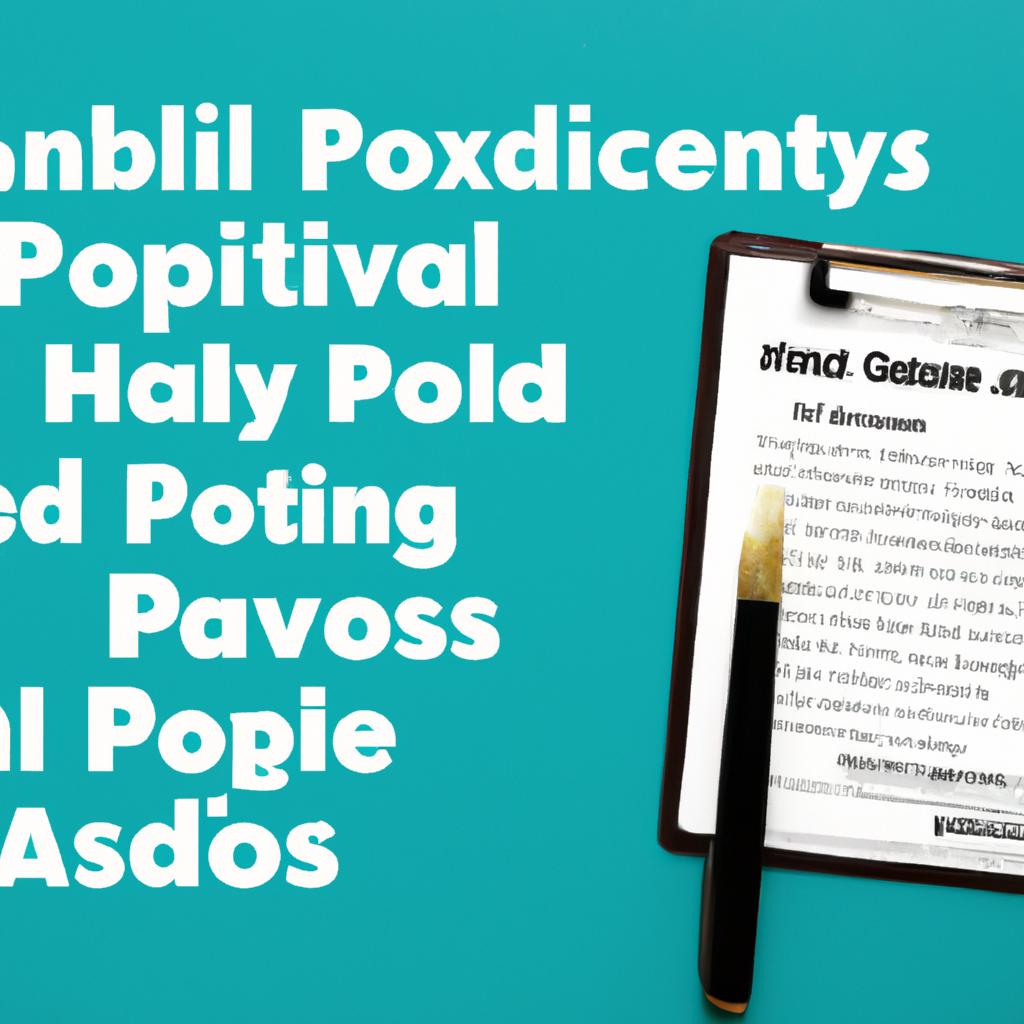In the realm of financial planning, the topic of payable on death (POD) accounts often sparks inquiries and debates regarding their tax implications. As seasoned attorneys at Morgan Legal Group in New York City, we understand the importance of ensuring our clients have a comprehensive understanding of the tax implications surrounding POD accounts. In this article, we delve into the complexities of whether POD accounts are taxable, providing clarity and guidance for those navigating the intricacies of estate planning.
Understanding the Tax Implications of Payable on Death Accounts
When it comes to payable on death accounts, one common question that arises is whether or not they are taxable. The answer to this question is not a simple yes or no, as it depends on various factors. Here are some key points to keep in mind:
- Income Tax: Payable on death accounts do not trigger income tax liability for the beneficiary at the time the account owner passes away.
- Estate Tax: Depending on the size of the estate, the funds in a payable on death account may be subject to estate tax. It is important to consult with an experienced estate planning attorney to discuss any potential tax implications and strategies for reducing tax liability.

Analyzing the Treatment of Payable on Death Accounts Under Tax Law
In analyzing the treatment of payable on death (POD) accounts under tax law, it is important to understand the implications of these accounts on estate planning and taxation. POD accounts are a popular estate planning tool that allows an account holder to designate a beneficiary who will automatically receive the funds in the account upon the account holder’s death. One key question that often arises is whether the funds in a POD account are subject to taxation.
From a tax perspective, funds in a POD account are generally not subject to income tax. The beneficiary of a POD account does not have to report the funds as income on their tax return. Additionally, since the funds pass directly to the beneficiary outside of probate, they are not subject to estate taxes. However, it is important to note that state laws regarding inheritance taxes may vary, so it is advisable to consult with an experienced estate planning attorney to ensure compliance with all applicable tax laws.

Exploring Strategies to Minimize Tax Liability on POD Accounts
When it comes to minimizing tax liability on Payable on Death (POD) accounts, there are several strategies that individuals can consider. One approach is to carefully review and analyze the current tax laws and regulations pertaining to POD accounts. By staying informed and up to date on any changes in tax laws, individuals can make more informed decisions about how to structure their POD accounts to minimize tax liability.
Another strategy is to consult with a knowledgeable estate planning attorney or financial advisor who can provide guidance on the best ways to minimize tax liability on POD accounts. These professionals can help individuals understand the tax implications of different account structures and provide recommendations on how to optimize their accounts to reduce tax exposure. By working closely with these experts, individuals can develop a comprehensive plan to minimize tax liability on their POD accounts.

Navigating the Complexities of Payable on Death Accounts and Taxation
When it comes to payable on death (POD) accounts, one common question that comes up is whether they are subject to taxation. The answer to this question is both straightforward and complex at the same time, as it depends on various factors. Generally speaking, the funds in a POD account are not subject to income tax, as they are considered a non-probate transfer at death. This means that the assets bypass the probate process and go directly to the named beneficiary.
However, it’s crucial to keep in mind that while the funds in a POD account may not be subject to income tax, they may still be subject to estate tax, depending on the value of the account and the applicable tax laws. It’s essential to consult with a knowledgeable estate planning attorney to understand the tax implications of POD accounts and how they fit into your overall estate plan. By carefully navigating the complexities of POD accounts and taxation, you can ensure that your assets are distributed according to your wishes while minimizing tax liabilities.
Q&A
Q: Are payable on death accounts taxable?
A: Yes, payable on death accounts are subject to taxation.
Q: What taxes are payable on death accounts subject to?
A: Payable on death accounts are typically subject to inheritance and estate taxes.
Q: Are beneficiaries of payable on death accounts responsible for paying taxes?
A: In most cases, beneficiaries are not responsible for paying taxes on assets received from a payable on death account. Taxes are usually paid by the estate of the deceased individual.
Q: How can one minimize tax liabilities on payable on death accounts?
A: To minimize tax liabilities on payable on death accounts, individuals can consult with a financial advisor to explore tax planning strategies and ensure proper estate planning measures are in place.
Concluding Remarks
In conclusion, while payable on death accounts can be a convenient way to transfer assets to beneficiaries without having to go through the probate process, it is important to understand the tax implications involved. In most cases, the funds in a POD account are not subject to income tax for the beneficiary, but it is always best to consult with a tax professional to fully understand your individual situation. By being informed and prepared, you can ensure that your loved ones receive the financial benefits you intend for them. Thank you for reading and we hope this article has provided valuable insights into the tax considerations of payable on death accounts.
 Are Payable on Death Accounts Taxable: What You Need to Know
Are Payable on Death Accounts Taxable: What You Need to Know
Payable on death (POD) accounts are an increasingly popular way for individuals to transfer their assets to beneficiaries after they pass away. This type of account offers a simple and efficient way to avoid probate and ensure a smooth transition of assets to your loved ones. However, you may be wondering if these accounts are taxable and how they fit into your overall estate plan. In this article, we’ll explore the world of POD accounts and provide you with valuable information to help you make informed decisions about your financial future.
Understanding Payable on Death Accounts
Payable on death accounts, also known as transfer-on-death accounts, are a type of non-probate transfer mechanism that allows an individual to designate beneficiaries for their assets, such as bank accounts, retirement accounts, or investment accounts. Unlike a will, which outlines the distribution of all your assets after you pass away, a POD account only affects the assets that are specifically designated for it.
One of the advantages of POD accounts is that they bypass the probate process. Probate is a legal process that involves identifying and gathering the assets of a deceased person, paying off any debts and taxes, and distributing the remaining assets to the designated beneficiaries. It can be a lengthy and costly process, often taking months or even years to complete. By designating beneficiaries for your POD accounts, your assets can be transferred directly to them without going through probate, saving time and money for your loved ones.
Are Payable on Death Accounts Taxable?
The short answer is yes, POD accounts are taxable. However, the specifics depend on the type of assets included in the account and the tax laws in your state. Let’s discuss the taxable implications of different types of POD accounts.
1. Bank Accounts
POD bank accounts, also known as payable on death bank accounts or Totten trusts, are considered revocable transfers under federal tax law. That means the assets held in these accounts are still considered part of your estate for tax purposes and may be subject to estate taxes if they exceed the federal estate tax exemption amount ($11.7 million in 2021).
However, one significant advantage of POD bank accounts is that they allow for the automatic transfer of assets to designated beneficiaries without the involvement of the court. That means your beneficiaries can access the funds immediately after your passing, which can be crucial for their financial well-being.
2. Retirement Accounts
Retirement accounts, such as 401(k)s or IRAs, also give you the option to name a beneficiary in the event of your passing. If you designate a beneficiary for your retirement account, it automatically becomes a payable on death account. The tax implications of these accounts depend on the type of retirement account, traditional or Roth.
For traditional retirement accounts, any withdrawals by your beneficiary will be subject to income tax. However, if distributions are made over time rather than in a lump sum, your beneficiary may be able to spread out the tax burden and avoid being bumped up into a higher tax bracket.
On the other hand, Roth IRA beneficiaries typically don’t have to pay income tax on their distributions because the taxes have already been paid on the contributions. However, they must withdraw the assets within ten years of the account owner’s death, which could result in a higher income tax bill for the beneficiary.
3. Investment Accounts
Like retirement accounts, investment accounts, such as stocks, bonds, and mutual funds, allow for the designation of beneficiaries to transfer the assets upon your passing. These accounts also have different tax implications depending on the type of asset and how it is held.
For example, if you hold stocks or mutual funds in a POD account, your beneficiaries will receive a step-up in cost basis, meaning they will only be responsible for paying capital gains taxes on any increase in value from the time they received the assets. On the other hand, if you hold these assets in a living trust, your beneficiaries will have to pay capital gains taxes on the full amount of the assets’ appreciation.
Benefits and Practical Tips for Payable on Death Accounts
One of the most significant benefits of a POD account is the ability to transfer your assets directly to your beneficiaries without having to go through probate. This not only saves your loved ones time and money but also ensures a more efficient distribution of your assets according to your wishes.
Here are some practical tips to keep in mind when considering a POD account:
– Check your state’s laws and regulations: Some states have specific laws and regulations governing POD accounts, so it’s crucial to understand your state’s rules before designating beneficiaries for your assets.
– Keep your beneficiaries updated: It’s essential to regularly review and update the designated beneficiaries for your POD accounts, especially in the event of major life changes, such as marriages, divorces, or the passing of a beneficiary.
– Consult with a financial advisor and estate planning attorney: Designating beneficiaries for your assets requires careful consideration and planning. It’s always a good idea to consult with a financial advisor and estate planning attorney to ensure your wishes are carried out effectively.
Case Study: The Importance of Updating Your Beneficiaries
A common mistake many people make is forgetting to update their designated beneficiaries for their POD accounts. This oversight can lead to unintended consequences and disputes among family members. In a real-life case, a father named his ex-wife as the beneficiary for his POD account, forgetting to update it after getting remarried. After he passed away, his ex-wife received his assets, and his new wife and children had to go through a long legal battle to try and recover the assets.
Firsthand Experience: POD Accounts in Action
A friend of mine recently lost her grandmother, who had a POD savings account for her and her siblings. Thanks to the POD designation, the assets were transferred directly to her and her siblings without having to go through probate. This not only saved the family time and money but also gave them peace of mind during a difficult time.
In Conclusion
Payable on death accounts offer an efficient and straightforward way to transfer your assets to your beneficiaries. However, they come with certain tax implications that you should consider before designating your beneficiaries. It’s advisable to consult with a financial advisor and estate planning attorney to ensure your POD accounts align with your overall financial plan and savings goals. By following the tips and best practices mentioned in this article, you can ensure a smooth and hassle-free transfer of assets to your loved ones according to your wishes.

